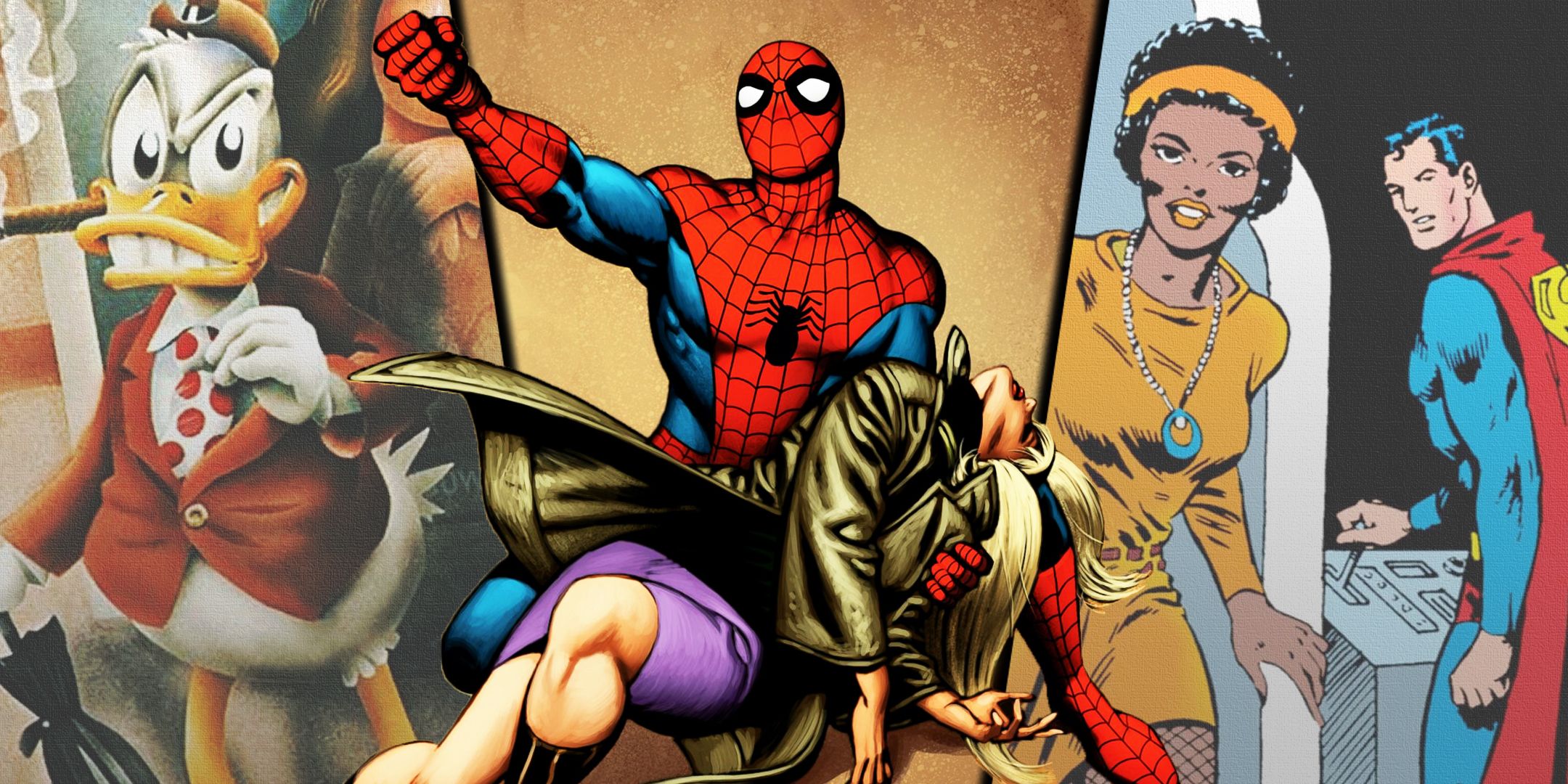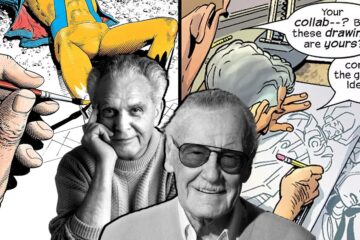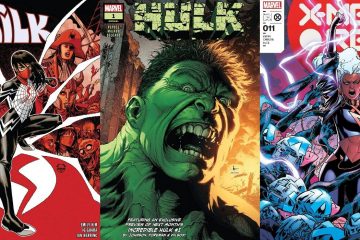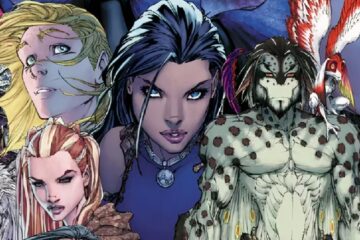Comic books were still seen as children’s entertainment during the 1970s. Longtime publishers like Archie and Gold Key reliably put out fun stories for kids, as they had been doing for decades, with little to no fanfare. Adults could readily enjoy these comics, as well. But at times, publishers opted to push the boundaries of their presumed audience. Rather than just aim for younger readers, creative teams would instead target older ones. Sometimes touching on real-life social issues. And when they did, their boldness often stirred controversy.DC did just that, for example, when the publisher introduced the notion of black Kryptonians. A laudable intent, to be sure, but many readers took offense to the storyâs segregationist tone. The growing underground comix movement regularly showed graphic sexual imagery and rampant drug use. But comparatively few ever saw these titles. And Marvel infamously stirred the pot by creating a clone of Spider-Man. Not to mention Peter Parkerâs one-time deceased girlfriend, Gwen Stacy. That storyline was resolved- until the real arguments started when Marvel revisited the idea two decades later. But all of these were largely forgotten compared to other notable controversial stories of the era.DC was four years into its so-called ânewâ Wonder Woman phase, which had been about four years too long for many fans. It was the first time, but not the last, that Wonder Woman would go through a revamp. Dennis OâNeil and Mike Sekowskyâs Wonder Woman #178 introduced many changes to the character. Her iconic star-spangled costume was gone. In its place, Diana Prince now wore a new groovy-looking pantsuit, at least to start. Dianaâs âcostumeâ continuously changed throughout the run. She also no longer went by the moniker of Wonder Woman, as she had also lost her Amazonian powers. To compensate, she sought the tutelage of martial arts master I-Ching. That character was a straight-out Asian racial stereotype, which ushered in a whole different controversy. Readers were frankly tired of the “new” Wonder Woman. Thankfully, DC ended this era with Wonder Woman #204, when Dianaâs traditional costume and powers returned.
Comic books were still seen as children’s entertainment during the 1970s. Longtime publishers like Archie and Gold Key reliably put out fun stories for kids, as they had been doing for decades, with little to no fanfare. Adults could readily enjoy these comics, as well. But at times, publishers opted to push the boundaries of their presumed audience. Rather than just aim for younger readers, creative teams would instead target older ones. Sometimes touching on real-life social issues. And when they did, their boldness often stirred controversy.
DC did just that, for example, when the publisher introduced the notion of black Kryptonians. A laudable intent, to be sure, but many readers took offense to the storyâs segregationist tone. The growing underground comix movement regularly showed graphic sexual imagery and rampant drug use. But comparatively few ever saw these titles. And Marvel infamously stirred the pot by creating a clone of Spider-Man. Not to mention Peter Parkerâs one-time deceased girlfriend, Gwen Stacy. That storyline was resolved- until the real arguments started when Marvel revisited the idea two decades later. But all of these were largely forgotten compared to other notable controversial stories of the era.
DC was four years into its so-called ânewâ Wonder Woman phase, which had been about four years too long for many fans. It was the first time, but not the last, that Wonder Woman would go through a revamp. Dennis OâNeil and Mike Sekowskyâs Wonder Woman #178 introduced many changes to the character. Her iconic star-spangled costume was gone. In its place, Diana Prince now wore a new groovy-looking pantsuit, at least to start. Dianaâs âcostumeâ continuously changed throughout the run. She also no longer went by the moniker of Wonder Woman, as she had also lost her Amazonian powers. To compensate, she sought the tutelage of martial arts master I-Ching. That character was a straight-out Asian racial stereotype, which ushered in a whole different controversy. Readers were frankly tired of the “new” Wonder Woman. Thankfully, DC ended this era with Wonder Woman #204, when Dianaâs traditional costume and powers returned.
#Controversial #Comic #Books #1970s #Ranked
Note:- (Not all news on the site expresses the point of view of the site, but we transmit this news automatically and translate it through programmatic technology on the site and not from a human editor. The content is auto-generated from a syndicated feed.))



